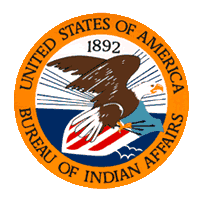New Rules for Recognizing Indian Tribes

The Obama administration has decided to amend federal rules for recognizing American Indian tribes, making it easier for those lacking the designation to achieve this new status—and possibly gain new economic opportunities, including health and educational benefits and control over commercial development.
Drafted by the Bureau of Indian Affairs, the new regulations would streamline the approval process for tribes to gain federal recognition. A key change would make it less difficult to be recognized by having to demonstrate political continuity only since 1934, instead of “first contact” with European settlers, which is the existing rule.
But with more tribes becoming “official” in the eyes of Washington, the potential could expand for political and economic conflicts between tribes, or between tribes and non-tribal communities.
For example, the 100-member Schaghticoke Indian Tribe in Connecticut is seeking federal recognition, and that worries residents in the town of Kent because the tribe claims land sitting beneath established properties, like the Kent School, a boarding school.
The tribe may also try to open a casino, a move that has stirred concerns in other locations where American Indians have used gambling to improve their economic well-being.
Richard Monette, a law professor and expert on American Indian tribes at the University of Wisconsin, told the Associated Press that more tribal recognition could increase inter-tribal frictions in some regions.
He cited the tribes along the Columbia River in Washington state, where arguments may arise over control of salmon fishing.
To date, the federal government has recognized 566 American tribes.
-Noel Brinkerhoff
To Learn More:
U.S. Overhauls Process for Recognizing Indian Tribes (by Michelle Melia, Associated Press)
Tribal Directory (National Congress of American Indians)
Native American Tribe Closer to Full Recognition (by Kyle Kuersten, AllGov)
- Top Stories
- Unusual News
- Where is the Money Going?
- Controversies
- U.S. and the World
- Appointments and Resignations
- Latest News
- Trump Offers to Return Alaska to Russia
- Musk and Trump Fire Members of Congress
- Trump Calls for Violent Street Demonstrations Against Himself
- Trump Changes Name of Republican Party
- The 2024 Election By the Numbers






Comments